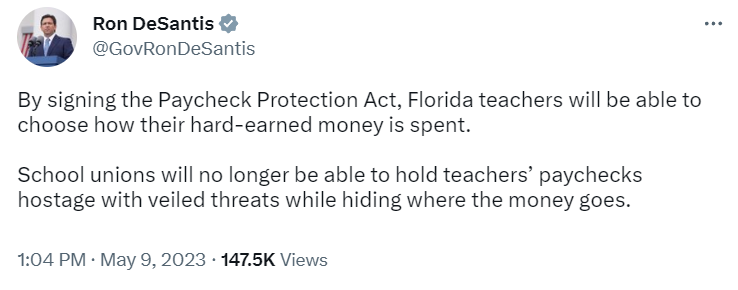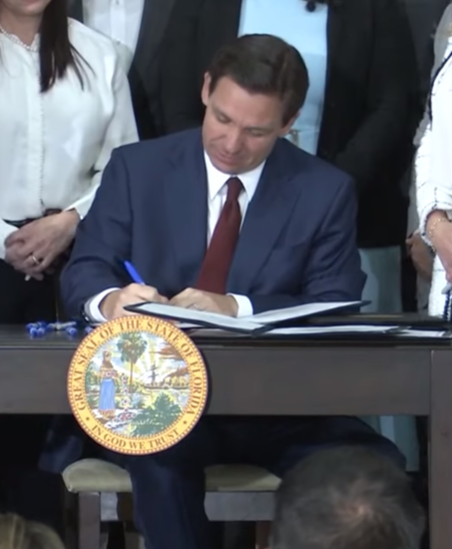It’s official: Florida Governor Ron DeSantis signed into law a paycheck protection bill that allows public employees to stop direct deductions of mandatory membership dues to unions.
DeSantis signed Senate Bill 256 on Tuesday, and said that the bill’s signing marked a “very productive day for education.” He added that Florida is “leading the way when it comes to teacher empowerment.”
In addition to ‘Paycheck Protection,” the bill includes the following provisions:
- Creating an audit process where unions have to hire an independent, certified accountant to conduct a financial audit
- Requiring union recertification when a union represents fewer than 60% of the number of employees eligible for union representation within a bargaining unit
- Allowing union members to revoke membership at any time “without any reason” instead of outlining opt-out windows
- Requiring unions to submit the number and percentage of dues-paying members in each bargaining unit as a part of annual registration renewals with the state and whose forms are subject to state review
- Listing the specific fees and monthly union membership dues to prospective members
- Exempting law enforcement officers, correctional officers, correctional probation officers, and firefighters from the law
The governor tweeted that the new law allows Florida teachers to “be able to choose how their hard-earned money is spent.” He added, “School unions will no longer be able to hold teachers’ paychecks hostage with veiled threats while hiding where the money goes.”

Unions, such as the Florida Education Association (FEA), claimed DeSantis was seeking “to punish and divide.” FEA organizer Frank Peterman told local media that the law is “a direct attack on unions and working-class families.” FEA President Andrew Spar said, “This new law grossly oversteps in trying to silence teachers, staff, professors and most other public employees.
According to federal tax fillings, the teachers union spent $5.3 million politics and lobbying in 2021.
The director of politics and public policy at AFL-CIO’s Florida affiliate, Rich Templin, echoed similar sentiments and said, “The goal of the bill is to eliminate collective bargaining for public-sector workers who the governor doesn’t like.”
No language in the bill limits the scope of collective bargaining.
